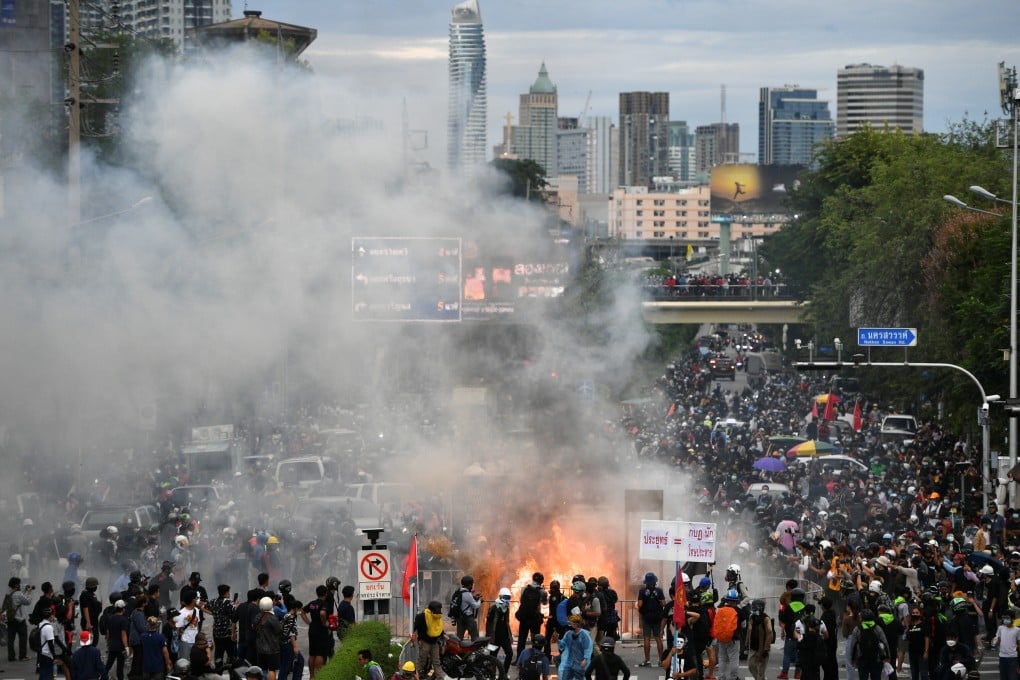Advertisement
Thailand’s street protests return, taking aim at Prayuth’s handling of Covid-19 pandemic
- Secrecy, supply delays and a reliance on China’s Sinovac jab have left Thailand scrambling for shots amid an explosion in coronavirus cases
- Anti-government activists are back on Bangkok’s streets despite a virus lockdown – and observers warn the protests will only expand if the health crisis deepens
Reading Time:4 minutes
Why you can trust SCMP
7

Jitsiree Thongnoiin Bangkok
A year after youth-led pro-democracy protests first swept the country demanding Prime Minister Prayuth Chan-ocha’s resignation and a new constitution, street politics has returned to Thailand.
This even though Covid-19 cases are surging with Bangkok under a lockdown. The capital’s medical system has been overwhelmed with new infections and on Tuesday authorities began transporting some patients back to their hometowns by train.
On July 18, thousands gathered near Government House in Bangkok, renewing calls for former junta leader Prayuth to stand down and for the government to spend more on managing the pandemic, including importing more mRNA vaccines.
Advertisement
Thailand has seen an explosion of Covid-19 cases amid a third wave of infections that began in April – reporting a record 17,669 new cases on Thursday, taking the total caseload to more than half a million, with 4,562 deaths.

Advertisement
“The government has had the opportunity to properly manage Covid-19,” said protest organiser Sombat Boonngamanong, whose activism gained traction after a lockdown imposed on Bangkok since July 12 failed to bring down infection rates. “But there are problems with the vaccines concerning their amount, efficacy and management, so this has provoked the people, who hold a consensus that this government should leave, [to protest].”
Advertisement
Select Voice
Select Speed
1.00x